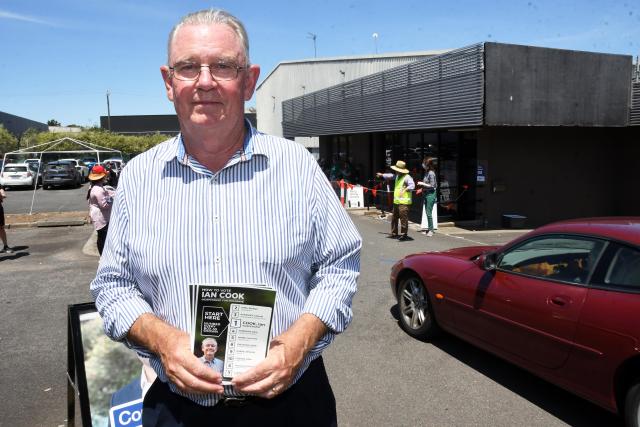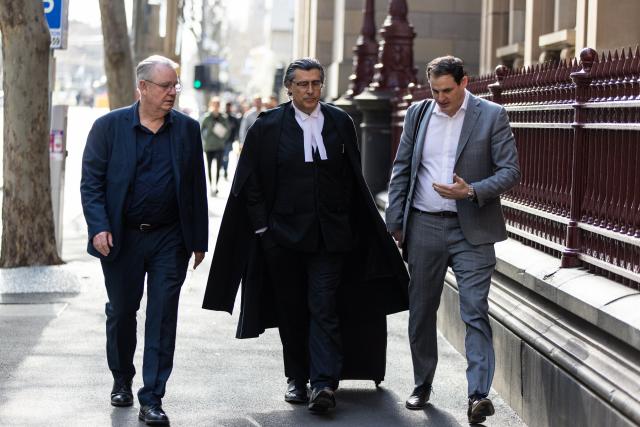by Cam Lucadou-Wells
The shutdown of I Cook Foods could have possibly taken a “different” course if then-acting Chief Officer Brett Sutton had given ICF an opportunity to be heard, a Supreme Court judge has said.
On 13 November, ICF was denied damages in its $50 million misfeasance lawsuit against the Department of Health and Human Services despite Sutton’s order being ruled “invalid”.
In his full reasons for judgement, Justice Michael McDonald said the order was invalid because ICF was denied procedural fairness.
Sutton had “erred” by denying ICF the opportunity to respond prior to Sutton’s order in February 2019.
Sutton’s varied order two days later was also invalid for the same reason, McDonald found.
“There was a realistic possibility that the decision making process in respect of the Order could have resulted in a different outcome if ICF had been provided with an opportunity to be heard prior to the making of the Order.”
However Sutton didn’t commit misfeasance because he was not “recklessly indifferent” to whether he was required to provide procedural fairness, according to the judge.
After the verdict, ICF director Ian Cook said it was a “bittersweet victory” – nearly five years after ICF’s kitchen was temporarily shut down and ordered to destroy $700,000 worth of food.
ICF effectively stopped trading. Its contracts with customers were terminated and its 41 staff were dismissed.
“We were right, we won the argument that what (Sutton) was doing was wrong … but we don’t get the damages.
“So he just has to find bacteria in a premises and he can shut them down. It’s wrong. What does it mean for every business in Victoria?
“Theoretically any Chief Health Officer, any council can close down a business and there’s no consequences.”
Ian’s son Ben Cook, who was ICF’s general manager, said “financially we’ve lost everything, the staff have lost everything while the government gets away with it.
“(Sutton) should have turned his mind to (procedural fairness).
“Just because (Sutton) didn’t turn his mind to it doesn’t mean they should get off.”
McDonald listed “material” matters that ICF could have brought to Sutton’s attention if given the chance – such as ICF already being issued with a Greater Dandenong Council order to clean the factory.
ICF could have also detailed the volume of food – about 20,000 sandwiches over the past month – it had distributed since the listeriosis case that sparked the DHHS investigation.
There were no further linked cases of listeriosis.
McDonald accepted Sutton’s evidence that he did not know he was obliged to give ICF an opportunity to be heard.
He “did not turn his mind” nor did he seek or receive legal advice on the issue.
“He did not turn his mind to whether ICF had a right to be heard because he was making an order for the protection of individuals at risk of consuming unsafe food.
“Dr Sutton erred by making the Order without first providing ICF with an opportunity to be heard.
“However, this did not constitute misfeasance in public office.”
The shutdown was part of a DHHS investigation into the death of an 86-year-old listeria-infected patient at Knox Private Hospital.
Sutton had based his decision on lab tests confirming listeria mono (LM) were found on six food samples in the ICF kitchen, and preliminary genetic sequencing that compared the LM strain to the patient’s infection.
ICF argued that Sutton should have waited for more definitive lab tests.
The LM found in the ICF food samples was later found within safe levels according to national food standards, ICF submitted.
In evidence, Sutton argued that an unrelated listeria outbreak occurred in contaminated rockmelon despite “safe levels”,
McDonald found there was a “logical connection” between the facts in front of Sutton and Sutton’s “state of satisfaction” that ICF’s food was unsafe.
Rather than damages, McDonald ruled in favour of “declaratory relief” for ICF which had suffered “irreversible” and “adverse” impact.
A declaration that the order was invalid would go some way to redressing the business’s reputation, the judge stated.
“It will also provide ICF with vindication that it has been subject to a wrong done by a public office holder.”
McDonald will award costs for the trial at a later date.
Meanwhile, Ian Cook – the owner of ICF – is running as an independent candidate in the Mulgrave by-election on Saturday 18 November.
He said he still intends to sue Greater Dandenong Council for alleged “malicious prosecution” over the ICF shutdown.








